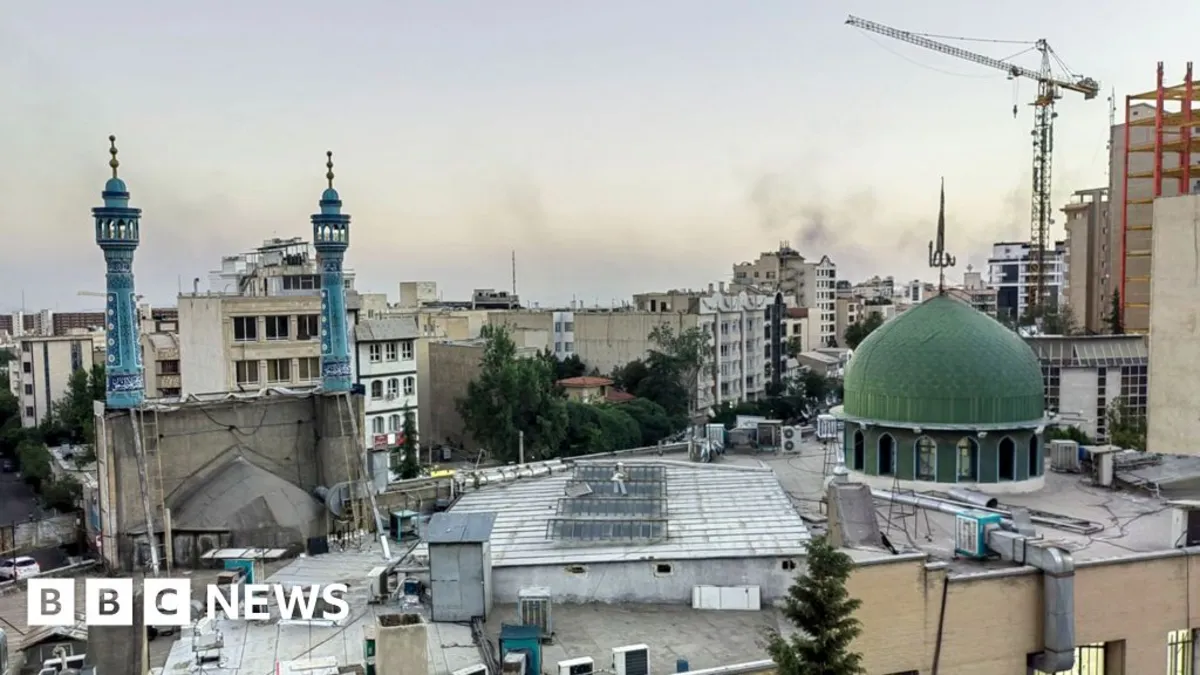
Fear and stress permeate my sister's voice as we connect through a crackling, intermittent WhatsApp call—an unexpected lifeline in these turbulent times in Tehran. She seeks clarity from me, knowing I am a journalist with the BBC in London. "What is going to happen? What should we do?" she asks, her anxiety palpable. The situation has escalated dramatically since US President Donald Trump issued a warning for people in Tehran to evacuate. But is he serious?
Since Thursday night, Tehran has faced relentless bombardment from Israeli aircraft, which seem to fly freely over the capital. Anti-aircraft fire attempts to respond, but largely proves ineffective. From her high-rise apartment, my sister has a front-row seat to the chaos unfolding outside her window, a sight that does little to calm her frayed nerves. The Israeli military has ordered evacuations in her district, extending several kilometers in all directions. Despite the danger, she has opted to stay behind.
She believes there are no military targets close to her apartment block, yet her mind is troubled by a nearby commercial unit, allegedly owned by the Revolutionary Guards, which could potentially be a target. The uncertainty surrounding military activities is widespread; many residents are unaware of their neighbors' affiliations or the presence of military targets, as much of the Revolutionary Guards' operations are shrouded in secrecy.
While electricity and water remain available in many areas of Tehran, the situation regarding food supplies is dire. Grocery stores are closing, and the number of functioning bakeries has dwindled. Some bakeries have shut down due to flour shortages, while others may have closed as their owners fled the escalating violence. My sister, unlike hundreds of thousands—perhaps millions—who have already evacuated, remains in the city, primarily because she has nowhere else to go.
Despite the ongoing chaos, the once-bustling streets of Tehran have grown eerily quiet. Those who have chosen to stay are reluctant to venture outside, fearing further attacks. Recent reports suggest that the long queues at petrol stations have started to ease, and the roads leading out of the capital have become less congested, indicating a mass exodus of residents.
For residents near Iran's nuclear facilities, there is an added layer of anxiety regarding potential radioactive contamination. These sites have been targeted multiple times by Israeli strikes in recent days. The global nuclear watchdog has reported that radiation levels outside two affected sites remain unchanged, but the fear of what might come next lingers heavily in the air.
As the situation in Tehran continues to unfold, the need for reliable information and support is more critical than ever. Those like my sister, caught in this turmoil, face a stark reality filled with uncertainty and fear.